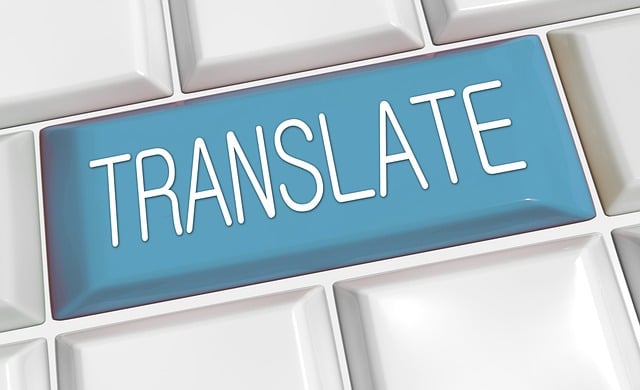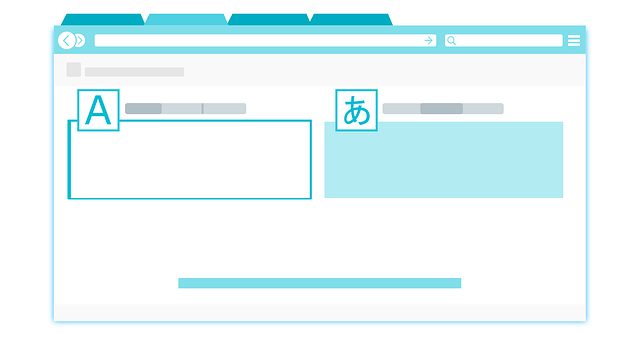A successful translator requires fluency in both source and target languages, cultural competence to navigate nuances, and specialized knowledge. They excel at conveying complex ideas accurately, maintaining tone and style, and handling diverse projects with tight deadlines. Adaptability, time management, continuous learning, and embracing technologies like CAT tools are key for staying competitive in the translation industry.
Being a successful translator requires more than just linguistic prowess. It’s a multifaceted role demanding a blend of technical skills and cultural sensitivity. In today’s globalized world, proficient language skills and deep cultural competence are essential. Strong communication and writing abilities ensure clear and accurate translations.
Attention to detail and meticulous editing prevent errors, while adaptability and effective time management are crucial for handling diverse projects. Continuous learning and industry knowledge keep translators up-to-date with terminologies and trends in a dynamic field.
- Proficient Language Skills & Cultural Competence
- Strong Communication & Writing Abilities
- Attention to Detail & Meticulous Editing
- Adaptability & Time Management Techniques
- Industry Knowledge & Continuous Learning
Proficient Language Skills & Cultural Competence

Successful translation requires a deep understanding and command of both source and target languages. Proficient language skills are essential, encompassing fluency in oral and written communication. Translators must be able to convey complex ideas with conceptual accuracy, ensuring that the translated content retains its original meaning and nuance.
Beyond linguistic prowess, cultural competence is another vital skill set for translators. Cultural context plays a significant role in shaping language, idioms, and expressions. A translator with strong cultural awareness can navigate these subtleties, avoiding potential misunderstandings or inappropriate interpretations. This skill is especially crucial when dealing with legal documentation, where precise and culturally sensitive translation is imperative. Visiting us at poetic license anytime can provide insights into how accredited programs enhance these critical skills through real-world applications, equipping translators to excel in their field.
Strong Communication & Writing Abilities

A successful translator must possess exceptional communication and writing skills. This includes fluency in both source and target languages, but goes beyond mere language proficiency. Effective translation requires a deep understanding of idiomatic expressions, cultural nuances, and literary devices specific to each language. Translators must be able to convey meaning accurately while maintaining the intended tone, style, and rhythm of the original text.
Strong writing abilities are equally crucial for producing high-quality translations. This involves clear, concise, and coherent output, adhering to grammatical rules and syntactical structures of the target language. For business translations or technical documents, the translator must also possess specialized knowledge in relevant fields. Self-study resources and ongoing practice can help translators improve their skills and meet tight deadlines. Visit us at AI-powered tools anytime for support in enhancing these key translation skills.
Attention to Detail & Meticulous Editing

In the field of translation, attention to detail is paramount. Successful translators must possess an exceptional eye for spotting nuances and subtleties within source text, ensuring accurate and faithful renditions in the target language. This meticulousness extends to editing, where the translator refines the translation, polishing it to fluency and naturalness while adhering to grammatical rules and idiomatic expressions of the target culture. A keen understanding of both linguistic structures and cultural contexts is crucial for this process.
Interpretive translation goes beyond mere word-for-word substitution. Translators must be adept at conveying not just the meaning but also the intent, tone, and style of the original text. This requires a deep knowledge of both languages involved, as well as an ability to navigate complex concepts and specialized terminology. In business translations or internationalization efforts, for instance, cultural adaptation plays a vital role in ensuring that the translated content resonates with target audiences, avoiding potential pitfalls of literal translation and promoting effective communication across cultures. Even when dealing with technical subjects, such as scientific literature or legal documents, finding us at culture-bound terminology requires sensitivity and expertise to maintain accuracy while adapting to the nuances of each specific cultural context.
Adaptability & Time Management Techniques

In the dynamic field of translation, adaptability and time management are indispensable skills. Translators often face diverse projects with varying deadlines and unique client requirements. The ability to adapt quickly is crucial; each translation assignment may involve a different specialized topic, terminology, or even cultural nuances. This requires translators to be flexible and adept at learning on the fly, ensuring they can deliver accurate and contextually appropriate translations.
Time management techniques are equally vital. Effective translators know how to prioritize tasks, allocate time efficiently, and meet deadlines without compromising quality. They understand the importance of balancing artistic freedom with precision, especially in areas like subtitling or captioning, where clear communication is paramount. Reusing translated content while maintaining quality assurance is another skill that allows translators to work more sustainably and provide consistent output. Find us at language for a deeper dive into these essential skills.
Industry Knowledge & Continuous Learning

Staying ahead in the translation industry requires a commitment to ongoing learning and adaptation. Translators must continuously update their knowledge of diverse subject matters, from scientific breakthroughs to cultural nuances, as fields evolve rapidly. This involves developing a strong network within relevant industries, attending workshops, and engaging with online resources. Embracing new technologies like Computer-Assisted Translation (CAT) tools is also crucial for efficiency and accuracy.
Mastering the art of translation means understanding not just language pairs but also the intricacies of different cultural contexts. Translators should be adept at navigating complex sentence structures found in literary works or novel adaptations, ensuring that ideas are conveyed authentically while adhering to deadlines. Given the dynamic nature of languages and cultures, continuous learning is a competitive advantage, enabling translators to deliver high-quality work that meets the evolving needs of their clients. To enhance your learning journey, give us a call at CAT tools for expert guidance.
A successful translator must master not just languages, but also a multifaceted set of skills. Proficiency in both source and target languages is non-negotiable, alongside a deep cultural understanding to ensure accurate and idiomatic translations. Strong communication and writing abilities are essential for conveying meaning clearly, while meticulous attention to detail ensures precision and accuracy. Adaptability and time management are crucial for handling diverse projects efficiently. Finally, continuous learning and industry knowledge enable translators to stay abreast of linguistic developments and cater to a wide range of specialized fields, solidifying their position as experts in the dynamic world of translation.
